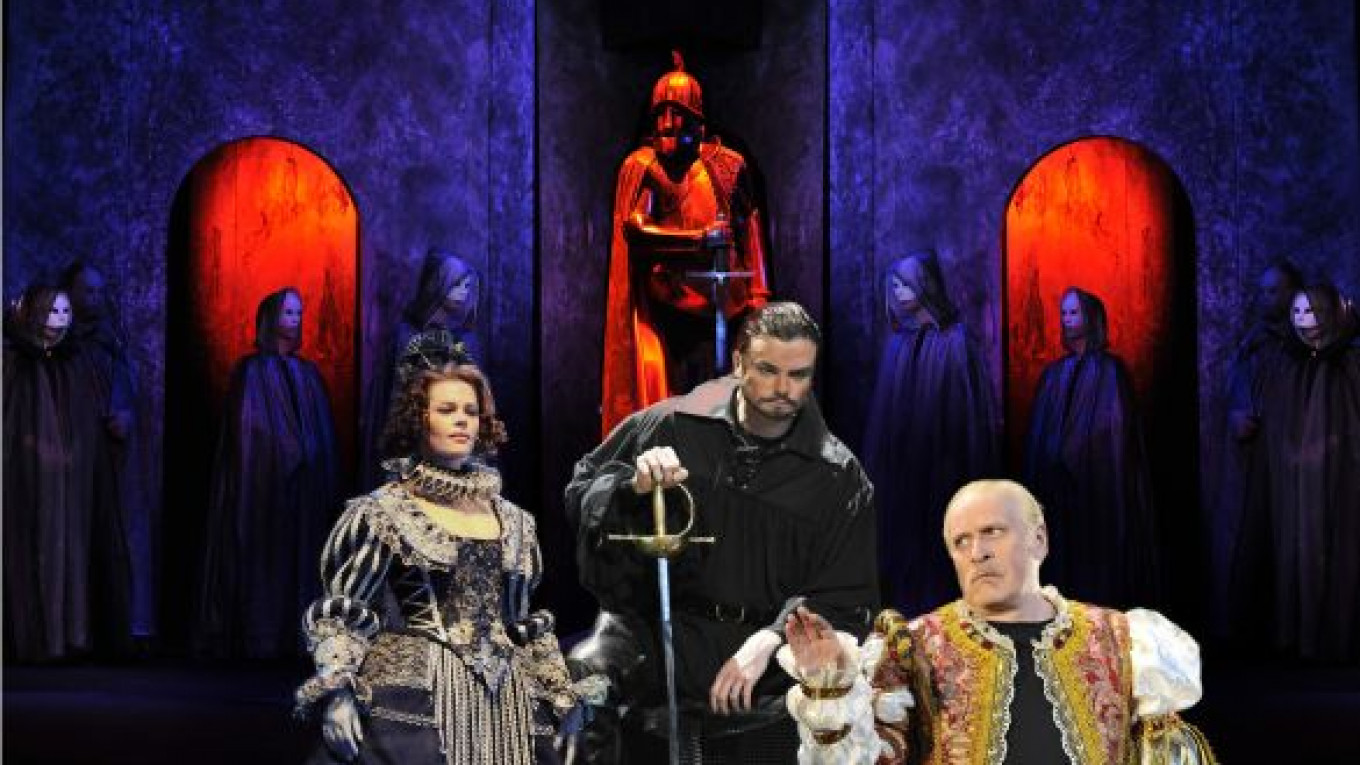If you rely on encyclopedias for your information, you are likely to suspect that A.K. Tolstoy was a minor writer in the 19th century who, subsequently, many have confused with Leo Tolstoy or Alexei Tolstoy.
In fact, A.K. Tolstoy — the A.K. stands for Alexei Konstantinovich — was a fascinating figure who occupies an honored place in the chronicles of Russian literature. A novelist, poet and playwright, his three historical plays about the tsars Ivan the Terrible, Fyodor Ioannovich and Boris Godunov are still performed frequently.
He also made a major contribution to Russian letters by participating in the famous hoax surrounding the non-existent comic writer Kozma Prutkov. Tolstoy and the Zhemchuzhnikov brothers penned an entire book's worth of wise and silly poems, parodies, adages, dramatic sketches and fables under that pseudonym, and it still remains a popular collection to this day.
One of my favorite Prutkov adages is, "One cannot fathom the unfathomable."
And I can't help but wonder if that provides us with a tie-in to the Maly Theater's new production of Tolstoy's "Don Juan."
This "Don Juan" strikes me as a work that repeatedly slips out of the grasp of director Alexander Klyukvin, composer Eduard Gleizer and designer Sergei Alexandrov.
Alexandrov's set, crossing elements of "The Chronicles of Narnia" and "Star Trek," works against the production every step of the way. Planets incongruously hang on strings from above, fake gray tree stumps stand in rows atop a metallic set of steps, and an electronic screen propped up at center stage shows expanding green dots as if, perhaps, imitating the view of a vessel hurtling through space.
Equally suspect is Gleizer's music. Apparently recorded mostly on a synthesizer, it provides faceless, tinny accompaniment to the action and the approximately 10 songs that the actors sing.
Musicals are generally agreed to be an acquired taste — an acquisition I have never made — and this production of "Don Juan" seems to me a perfect example of why that is true.
When Satan, plotting his evil plans for Don Juan, bursts into song, it is about as jarring a sight as I can imagine. Adding insult to injury is Lyudmila Parfenyuk's choreography, which often appears to consist primarily of wiggling hands and wobbling heads.
What we have here is a complete mismatch of genres.
Tolstoy designated his play as a dramatic poem. He clearly wrote it under the influence of Goethe's "Faust," as his Mephistophelian Satan continually tempts and pushes Don Juan toward his tragic end.
Gleizer's often sappy music, which borrows heavily from pop strains and a bit of flamenco, reduces the level of the work to that of a pop music video.
The rather crude Faustian leanings of Tolstoy's "Don Juan" date the play somewhat, although the quality of some of the verse is entirely sufficient to make this work stageworthy today. It is virtually impossible to see that in this production, however.
Tolstoy's treatment of the Don Juan myth was only the second in Russian literature after Pushkin's seminal "The Stone Guest." In fact, it might even be seen as an answer to Pushkin in that it took a completely different approach. Pushkin's short drama was intimate and personal, whereas Tolstoy's is a sprawling piece that makes numerous forays into the world of the spirits.
Tolstoy simplified the narrative on one level by skipping over all of Juan's women except Donna Anna (Olga Abramova). In this version it is Anna's father (played by Klyukvin), who dies at Juan's hand, attempting to avenge his daughter's honor.
But Tolstoy expanded the story in other areas by putting Satan (Boris Nevzorov) on equal footing with Don Juan (Alexei Faddeyev). Satan is backed by a large chorus of hooded Spirits and trawls evil territory similar to that of the Roman Catholic Inquisitor (Vasily Dakhnenko) as he seeks to destroy the freedom-loving Don.
Comic servants are often the best part of any work of this nature, and Don Juan's Leporello is no exception. As played by Viktor Nizovoi, Leporello is selfish and wise in measure, and always witty. He is also fortunate in that he is only called upon once to sing.
By the time this production reached its final song, A.K. Tolstoy's play had been reduced to the level of another of Kozma Prutkov's fine and perky adages: "If you wish to be happy, be it!"
Only in this case Don Juan was a little too late, and had no choice but to be sad.
"Don Juan" (Don Zhuan) plays Saturday at 6 p.m. and March 10 at 7 p.m. at the Maly Theater, located at 2 Teatralnaya Ploshchad. Metro Teatralnaya. Tel. (499) 624-4083, www.maly.ru. Running time: 2 hours, 45 minutes.
A Message from The Moscow Times:
Dear readers,
We are facing unprecedented challenges. Russia's Prosecutor General's Office has designated The Moscow Times as an "undesirable" organization, criminalizing our work and putting our staff at risk of prosecution. This follows our earlier unjust labeling as a "foreign agent."
These actions are direct attempts to silence independent journalism in Russia. The authorities claim our work "discredits the decisions of the Russian leadership." We see things differently: we strive to provide accurate, unbiased reporting on Russia.
We, the journalists of The Moscow Times, refuse to be silenced. But to continue our work, we need your help.
Your support, no matter how small, makes a world of difference. If you can, please support us monthly starting from just $2. It's quick to set up, and every contribution makes a significant impact.
By supporting The Moscow Times, you're defending open, independent journalism in the face of repression. Thank you for standing with us.
Remind me later.







